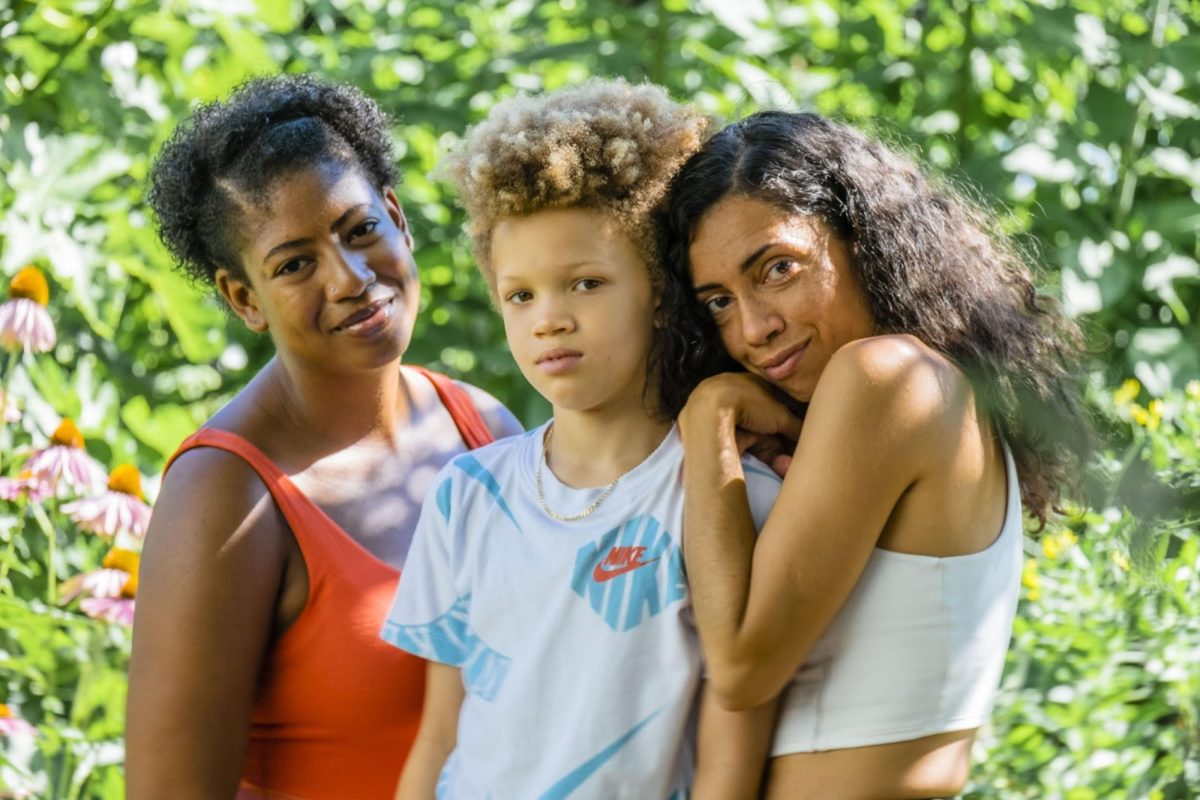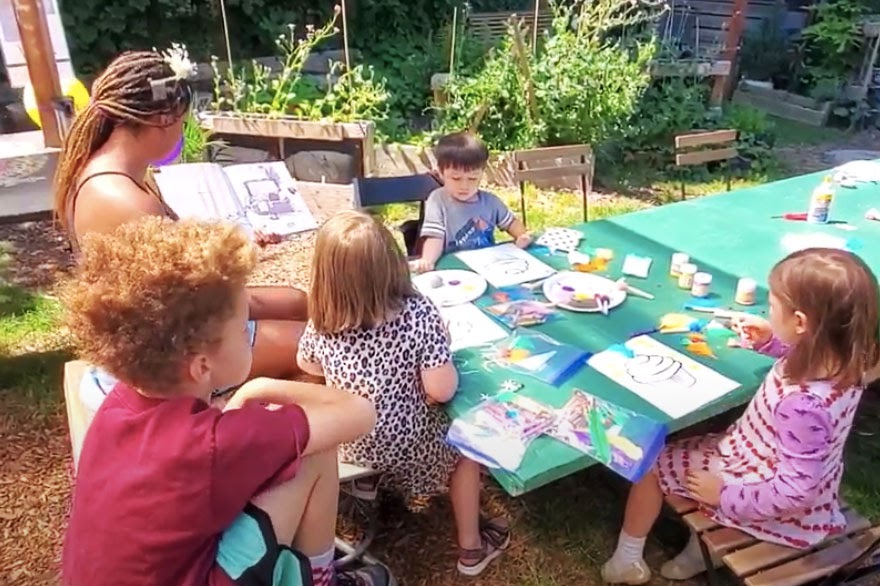i Dream Library brings diversity, allyship, and unlearning racism into B.C. classrooms

Pictured here: Our East Vancouver neighbours, Nikitha, Rakim and Aisha. Photo by Liam Hill-Allan. Story by Liam Hill-Allan with contributions from Jenny van Enckevort.
Celebrating International Literacy Day, September 8
When Aisha Kiani’s son, Rakim, entered primary school, she spotted a big problem.
“It began when I was in Rakim’s grade one classrooms and I was seeing that the classroom libraries really mimicked the content that my classroom library had back in the late eighties,” Aisha says. The representation of characters in storybooks was predominantly white, heteronormative, and centered around fluent English speakers. “I noticed that Rakim’s classroom libraries did not reflect the family dynamic that was raising him or his cultural background at all.”
Rakim (now age nine) was growing up in an urban setting, with a multiracial family who were co-parenting between two households—including one with two queer parents. Despite addressing the lack of diversity in the school’s reading materials, Aisha says little action was taken.
“I noticed when I would bring up the fact that [these kinds of books] were missing, the response to that would be ‘well, they don’t really exist, we don’t know where to find them, if you can find any, Aisha, why don’t you bring them in?’”
So, having worked in the literary world for most of her life, Aisha decided to take on that challenge by setting out on a two-year research journey. With help from her son, this would culminate in the creation of i Dream Library—an East Vancouver-based organization with the goal of creating “abundant LGBT2Q+ BIPOC representation in classrooms and libraries around the world.”
- LGBT2Q+ stands for: Lesbian, Gay/Gender non-conforming, Bisexual, Trans, Two-Spirit, and Queer, plus a full spectrum of sexual orientations and gender identities
- BIPOC stands for Black, Indigenous, and People of Colour
Nikitha Fester, an i Dream Library contributor with experience in French immersion education, says that i Dream Library is currently working to achieve this goal through its website.
“It is an online literary resource for anyone working with students, or kids who are looking to self educate, featuring books and novels from K to 12, written for and by diverse authors,” Nikitha explains. “It is almost like a one-stop-shop.”

The site, which has already been accessed by visitors from more than 40 countries, makes these works easy to find by breaking down publications by school level and grade. The site also provides a comprehensive glossary of definitions for important cultural terms such as BIPOC, oppression and ableism.
Nikitha says that without access to this type of educational content, students suffer. She suggests that many people may simply be unaware of the harm done when true representation is left out of the classroom and problematic narratives are left in.
“If I’m going to teach about the construction of the railroad, and I’m only going to focus on the head tax and the treatment of Chinese people and the racism that existed, I am erasing all the other contributions of the Chinese community,” Nikitha explains. “I am teaching my students of Chinese descent that this is where you are, and the others who don’t fit into that group, I’m forming their narrative and their understanding.”
While i Dream Library’s resources are designed to help young people, Aisha says that these kinds of initiatives are also an investment in a better future for everyone.
“These impacts are so important because it is shaping the lens of children and future adults, future policymakers, future lawmakers, future educators,” Aisha says. “That’s what we’re doing right now.”
Nikitha opens i Dream in the Garden storytime by acknowledging the Musqueam, Squamish and Tsleil-Waututh First Nations.
Over four Monday afternoons this past July, Aisha, Nikitha and Rakim hosted a series of storytime and activity sessions in the coFood Collaborative Garden in East Vancouver where diverse families could gather at a safe distance during COVID-19.
Looking forward, the team plans to expand by creating a physical collection of reading material at a space in Vancouver’s Mount Pleasant neighbourhood. This library would act as a real-world companion to the site’s digital database.
“This will be the first space that I’ve seen where I’ve walked in and all of the books are focused on the sharing and the visibility of queer, trans, BIPOC stories,” Aisha says.
Interested in supporting and learning about the i Dream Library team and mission? Visit their website: www.idreamlibrary.com.
September is Literacy month!
Stay tuned for updates about how the Kiwassa Neighbourhood House team is supporting literacy in the community.
Share your neighbourhood stories
Would you like us to consider sharing your good-news stories from the neighbourhood? We’re collecting stories and photos to inspire people in the community to connect in creative ways.
